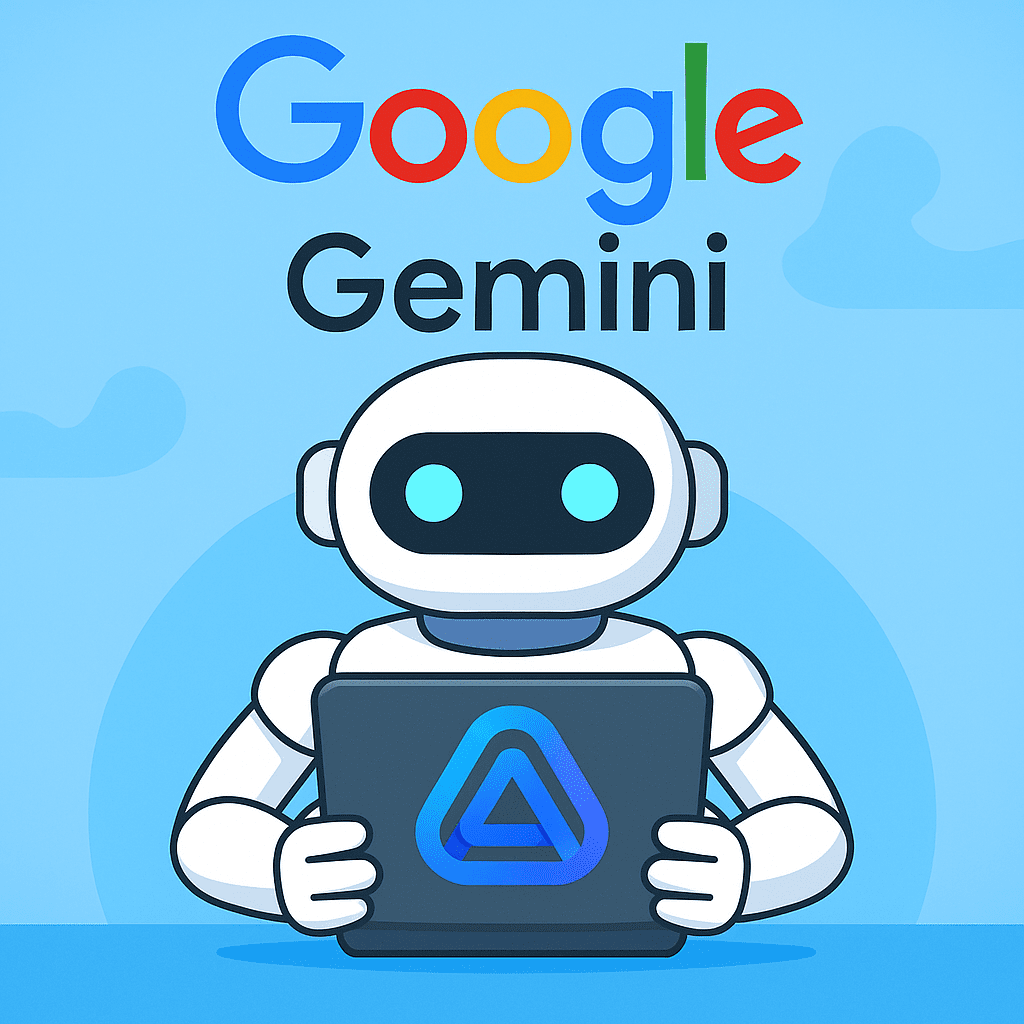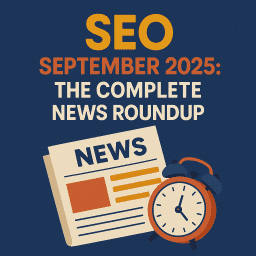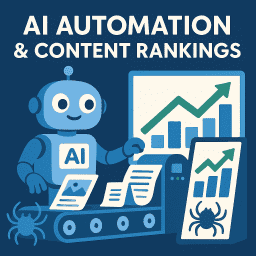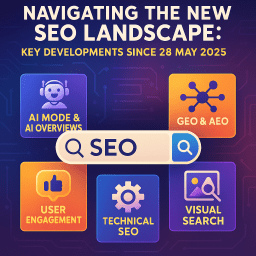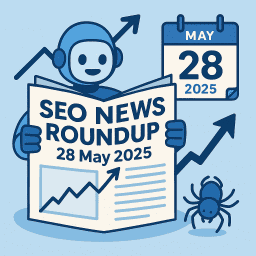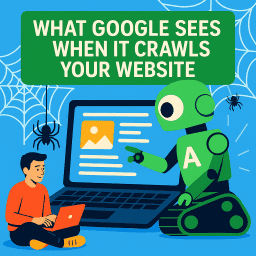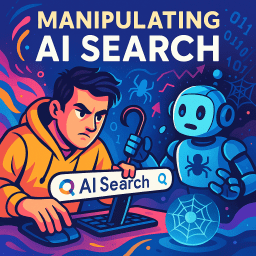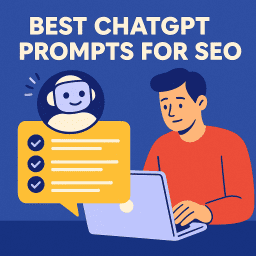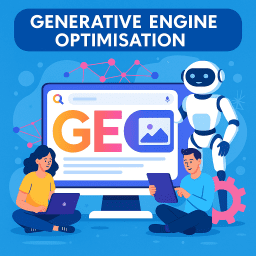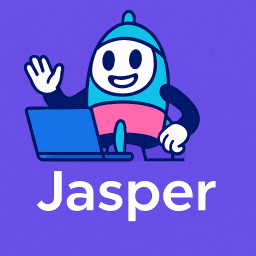How to Optimise for Google Gemini in SEO (2025 Guide)
A Deep Dive into Google’s Flagship AI and Its Role in Search
What Is Google Gemini?
Google Gemini is Google’s most advanced suite of multimodal AI models, designed to power search, productivity, mobile experiences, and more. Formerly branded as Bard, Gemini replaced Bard in early 2024 and now forms the backbone of AI Mode, AI Overviews, and Google Workspace integrations.
Gemini isn’t just a chatbot – it’s a family of models (Nano, Pro, and Ultra) used across different contexts, from mobile devices to Google Cloud. For SEOs, understanding how Gemini processes, surfaces, and reshapes content is crucial to optimising for AI-powered search in 2025 and beyond.
🔍 How Gemini Powers Search
Gemini is the core model behind AI Overviews and AI Mode in Google Search. It enables the following capabilities:
- Answer Generation: Summarises information from multiple sources to generate natural-language responses.
- Multimodal Understanding: Interprets images, voice, and text together to deliver contextual results.
- Conversational Search: Supports follow-up queries and search refinement using natural dialogue.
- Task Execution: Helps users complete actions such as bookings, summaries, or document generation through Search and Google Workspace.
Gemini’s integration into Google’s ecosystem makes it fundamentally different from external tools like ChatGPT or Claude. It has direct access to real-time data, your personal Google account (if opted in), and the broader Google Knowledge Graph.
📊 SEO Use Cases for Google Gemini
While SEOs don’t interact directly with Gemini in the way they do with ChatGPT, Gemini has a major impact on how content is found, interpreted, and delivered to users. Key applications include:
- Optimising for AI Overviews: Gemini powers these answers — and prefers concise, well-structured content with high E-E-A-T.
- Understanding User Journeys: Follow-up questions and conversational queries mean your content must support layered search intent.
- Image + Text Search: Gemini processes visual and text-based signals together — important for ecommerce, local, and how-to content.
- Preparing for Zero-Click Results: As Gemini delivers answers natively, you must optimise to be cited or referenced — not just clicked.
- Experimenting with Gemini Chat: Google Gemini Chat (formerly Bard) is useful for drafting SEO briefs, FAQ ideas, and schema snippets.
🧪 Real Use Case: Gemini and Local SEO
In AI Mode or mobile Gemini search, users can now upload photos or ask visual questions like “Where’s the best vegetarian café near this?” Gemini then processes image context, location, and reviews to deliver local listings — often with no website visit.
Optimising for this experience means:
- Updating Google Business Profiles with detailed images, FAQs, menus, and services
- Using schema markup for service areas and operating hours
- Ensuring NAP+E data is consistent across all listings
This is AI-powered local search — and it’s already live in AI Mode across several countries.
🤖 Gemini vs ChatGPT vs Claude vs Perplexity
- Gemini: Deeply integrated into Google Search, Gmail, Docs, and Maps. Best for real-world tasks and search generation.
- ChatGPT: Flexible and creative. Great for formatting, prompts, and generating structured SEO outputs.
- Claude: Thoughtful and ideal for long-form editing, rewriting, and in-depth analysis.
- Perplexity: Live web answers with citations. Great for SEO research and question mining.
Gemini is uniquely positioned because of its data access — but lacks the prompt engineering flexibility of open tools like ChatGPT.
⚠️ SEO Challenges Gemini Introduces
- Decreased Click-Through Rates: Gemini may answer a query completely without the user visiting your site.
- Less Predictable Ranking Signals: Being cited in an AI Overview doesn’t always reflect traditional rankings.
- Content Cannibalisation: Google may summarise your content but link to a competitor.
- Dynamic Answer Variability: Gemini responses may change frequently, making tracking difficult.
SEO in the Gemini era is about visibility, not just position. You must optimise to be featured — not merely indexed.
💡 Tips for SEO Success with Gemini
- Structure content clearly: Use headings, lists, FAQs, and short paragraphs.
- Use semantic keyword variants: Gemini understands meaning, not just exact-match keywords.
- Answer real questions: Focus on user intent and topical completeness — especially in niche topics.
- Use schema markup: Help Gemini “understand” your content structure using HowTo, FAQ, Product, and Article markup.
- Monitor AI-triggering keywords: Use tools to identify which queries now trigger AI Overviews or AI Mode responses.
💬 What the Experts Are Saying
“Gemini is Google’s attempt to become your search, your assistant, and your editor — all at once.”
— Barry Schwartz, Search Engine Roundtable
“The future of SEO isn’t blue links — it’s being cited in an answer box generated by Gemini.”
— Marie Haynes, SEO Consultant
“If you’re not part of Gemini’s understanding of a topic, you’re invisible to AI search.”
— Kevin Indig, SEO Strategist
“SEO is no longer about keywords alone. Gemini ranks content by meaning, trust, and usefulness — even when no links are clicked.”
— David Roche, The SEO Guide Book
❓ FAQs
What is Google Gemini?
Gemini is Google’s most advanced suite of AI models, used in search, mobile, Google Workspace, and developer tools. It replaced Bard and powers AI Overviews.
How does Gemini affect SEO?
Gemini generates answers directly in search results. It changes how visibility, clicks, and content ranking work — especially through AI Overviews and AI Mode.
Can I optimise content for Gemini?
Yes. Use clear structure, helpful answers, schema markup, and strong E-E-A-T signals. Being cited by Gemini requires quality, not just keyword use.
Is Gemini better than ChatGPT for SEO?
Gemini is more integrated with search, but ChatGPT is more customisable. Many SEOs use both for different purposes — Gemini for visibility, ChatGPT for content generation.


